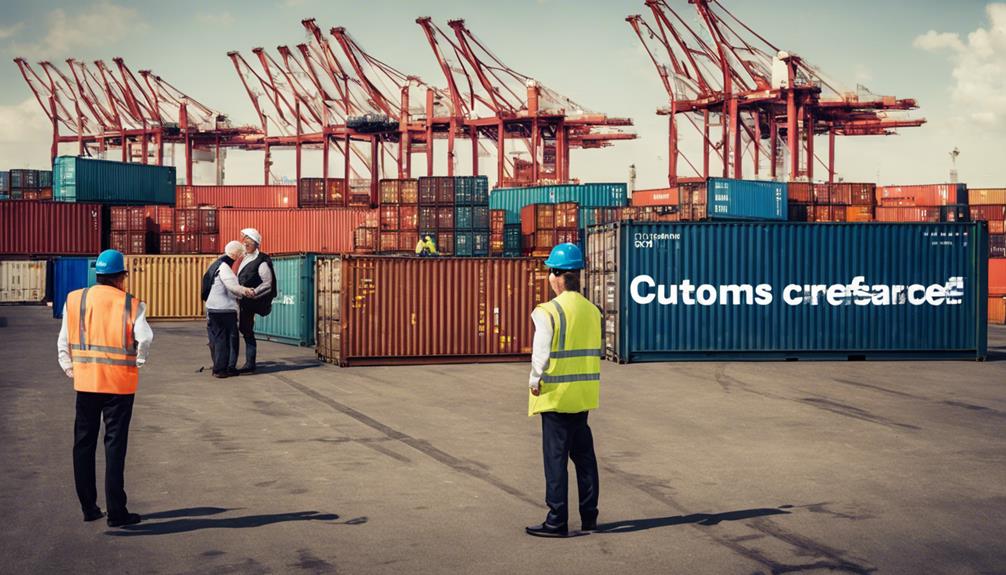When you're navigating the complexities of the Virginia Fuels Tax, understanding the role of the Occasional Importer Bond becomes crucial. This bond can significantly ease your compliance burden if you're importing fuel sporadically. It not only serves as a financial safeguard but also streamlines your operations. However, you might wonder who exactly needs this bond and what the application process entails. The answers could impact your business's efficiency and compliance strategy, so let's explore this further.
Understanding Virginia Fuels Tax

Understanding Virginia Fuels Tax is essential for anyone who drives in the state. This tax applies to the sale of gasoline and diesel fuels, impacting your overall cost at the pump. Virginia imposes a fixed rate per gallon, and it's crucial to be aware of these rates since they can vary over time.
When you fill your tank, you're not just paying for the fuel. Part of that price includes the fuels tax, which helps fund transportation projects and infrastructure improvements throughout the state. Knowing how this tax works means you can better estimate your fuel expenses.
If you're a business owner or responsible for managing a fleet, understanding the fuels tax becomes even more critical. You'll need to account for these taxes in your budgeting and pricing strategies.
Additionally, keep in mind that some exemptions might apply, particularly for specific types of fuel or users. Staying informed about these details can save you money in the long run.
What Is an Occasional Importer Bond?
An occasional importer bond is a type of surety bond that allows businesses or individuals to import goods into the United States without needing to establish a continuous bond. This bond serves as a guarantee to U.S. Customs and Border Protection (CBP) that you'll comply with all relevant laws and regulations during your import activities.
If you're looking to import goods only occasionally, this bond can be a cost-effective solution. Instead of tying up resources with a continuous bond, you can secure an occasional importer bond for specific shipments. The bond amount typically reflects the estimated duties, taxes, and fees associated with your imports, helping ensure that all financial obligations are met.
When you utilize an occasional importer bond, you're effectively minimizing your risk while still facilitating the import process. It's essential to work with a licensed surety bond provider to ensure that the bond meets all requirements.
Understanding the terms and conditions of the bond can also help you avoid potential pitfalls. By securing this bond, you can confidently proceed with your occasional importing activities without the burden of a long-term commitment.
Who Needs an Occasional Importer Bond?

Businesses or individuals who import goods occasionally may find that an occasional importer bond is essential for their operations. This bond acts as a financial guarantee to ensure compliance with customs regulations, as outlined in the U.S. Customs Bonds guidelines.
If you're importing items into Virginia without a regular import license, this bond protects you and ensures compliance with state regulations. It's particularly relevant for those who mightn't have a full-time import business but still need to bring in products for specific projects or events.
Small business owners who occasionally import goods for resale can benefit from this bond, as it helps you navigate the complexities of customs regulations.
If you're a contractor importing equipment for a temporary job, an occasional importer bond can provide the necessary security for your import activities. Additionally, individuals who might be bringing in personal items from abroad, such as antiques or collectibles, may also need this bond to avoid any legal hiccups.
In essence, if you find yourself importing goods sporadically, whether for business or personal reasons, obtaining an occasional importer bond is crucial for smooth operations. It ensures you're covered financially and legally, allowing you to focus on what you do best without worrying about compliance issues.
Benefits of the Occasional Importer Bond
While you mightn't import goods regularly, the occasional importer bond offers several significant benefits that can simplify your logistics and compliance efforts.
First, it can help you avoid delays at customs. By securing this bond, you demonstrate your commitment to adhering to regulations, making it easier for customs officials to process your shipments quickly.
Additionally, having an occasional importer bond can reduce your financial risk. This bond acts as a safeguard, ensuring that any taxes or penalties owed to the state are covered, which can save you from unexpected costs. It also fosters goodwill with suppliers, as they'll appreciate your professionalism and compliance with local laws.
Moreover, this bond provides peace of mind. Knowing that you have a financial safety net allows you to focus on your business rather than worrying about potential legal issues.
You'll also enjoy greater flexibility in your importing activities; whether you're bringing in goods sporadically or testing new markets, you won't need to commit to a more extensive bond.
In short, the occasional importer bond streamlines your importing process, mitigates risks, and enhances your business reputation. It's a smart choice for anyone involved in occasional imports.
Application Process for the Bond

Applying for the occasional importer bond is a straightforward process that can be completed in a few steps. First, you'll need to gather essential documentation, such as your business identification details and any relevant financial information. This will help the surety company assess your application and ensure compliance with state regulations regarding fuel tax bonds, which are crucial for legal operations in the fuel industry.
Next, you should choose a reputable surety bond provider. Research different companies, compare their rates, and read reviews to find one that fits your needs. Fuel tax bonds play a significant role in protecting government interests and supporting infrastructure funding.
Once you've selected a provider, fill out their application form. This typically includes personal information, business details, and specifics about your intended fuel imports.
After submitting your application, the surety company will evaluate your financial stability and business history. They may require additional documentation or clarification during this stage.
Once approved, you'll receive a quote outlining the bond premium. If you agree to the terms, you'll pay the premium and complete any necessary paperwork.
Compliance Requirements for Importers
Once you've secured your bond, it's vital to understand the compliance requirements for fuel importers in Virginia. You need to register with the Virginia Department of Taxation and obtain a Fuel Tax Registration. This registration allows you to report your fuel imports accurately.
Next, maintain accurate records of all fuel transactions. You must keep track of the quantity, type, and source of the fuel you import. This documentation is crucial for tax reporting and ensuring compliance with state regulations.
Be aware that you'll need to file fuel tax returns periodically. Typically, this is on a monthly basis, but it may vary based on your specific situation. Make sure you submit your returns by the due date to avoid any issues.
Additionally, you must pay any taxes owed by the specified deadlines. Failure to do so can lead to penalties and interest.
Lastly, stay updated on any changes in tax laws or regulations that may affect your operations. Compliance isn't just about following the rules; it's about staying informed and proactive in your fuel import activities.
Consequences of Non-Compliance

Non-compliance with fuel tax regulations in Virginia can lead to serious repercussions. If you fail to adhere to these laws, you could face hefty fines, which can significantly impact your bottom line. The state takes violations seriously, and the penalties can escalate quickly, especially for repeated offenses.
Additionally, your business might be subject to audits, which can consume valuable time and resources. An audit can uncover discrepancies that could lead to further financial liabilities, including back taxes and interest fees. Depending on the severity of the violation, you might even risk losing your importer bond, which is crucial for your operations.
Moreover, non-compliance can damage your reputation in the industry. Clients and partners may hesitate to work with you if they perceive your business as unreliable or risky. This can adversely affect your relationships and future opportunities.
In extreme cases, ongoing non-compliance could result in the suspension of your business operations. This means not only lost revenue but also potential legal consequences.
To protect your business and maintain your standing in the industry, it's vital to stay compliant with all fuel tax regulations.
Tips for Managing Fuel Taxes
To effectively manage your fuel taxes, it's essential to stay organized and informed about the latest regulations. Start by keeping thorough records of all fuel purchases, sales, and usage. This documentation will help you accurately report your taxes and avoid any discrepancies that could lead to penalties.
Next, familiarize yourself with the specific fuel tax rates in Virginia and any changes that occur. Subscribe to updates from the Virginia Department of Taxation to ensure you don't miss important announcements.
Consider using accounting software tailored for fuel tax management. These tools can automate calculations, track expenses, and generate reports, saving you time and reducing errors.
Additionally, set reminders for tax deadlines. Missing a deadline can result in fines and interest charges, so it's best to stay proactive.
Conclusion
In summary, the Occasional Importer Bond is your key to navigating Virginia's fuels tax regulations smoothly. By securing this bond, you can import fuels without the burden of a continuous bond, ensuring compliance and reducing financial risks. Remember to stay informed about compliance requirements and manage your fuel taxes effectively. With the right approach, you can enjoy the benefits of importing fuels while keeping your business on the right side of Virginia's tax laws.


